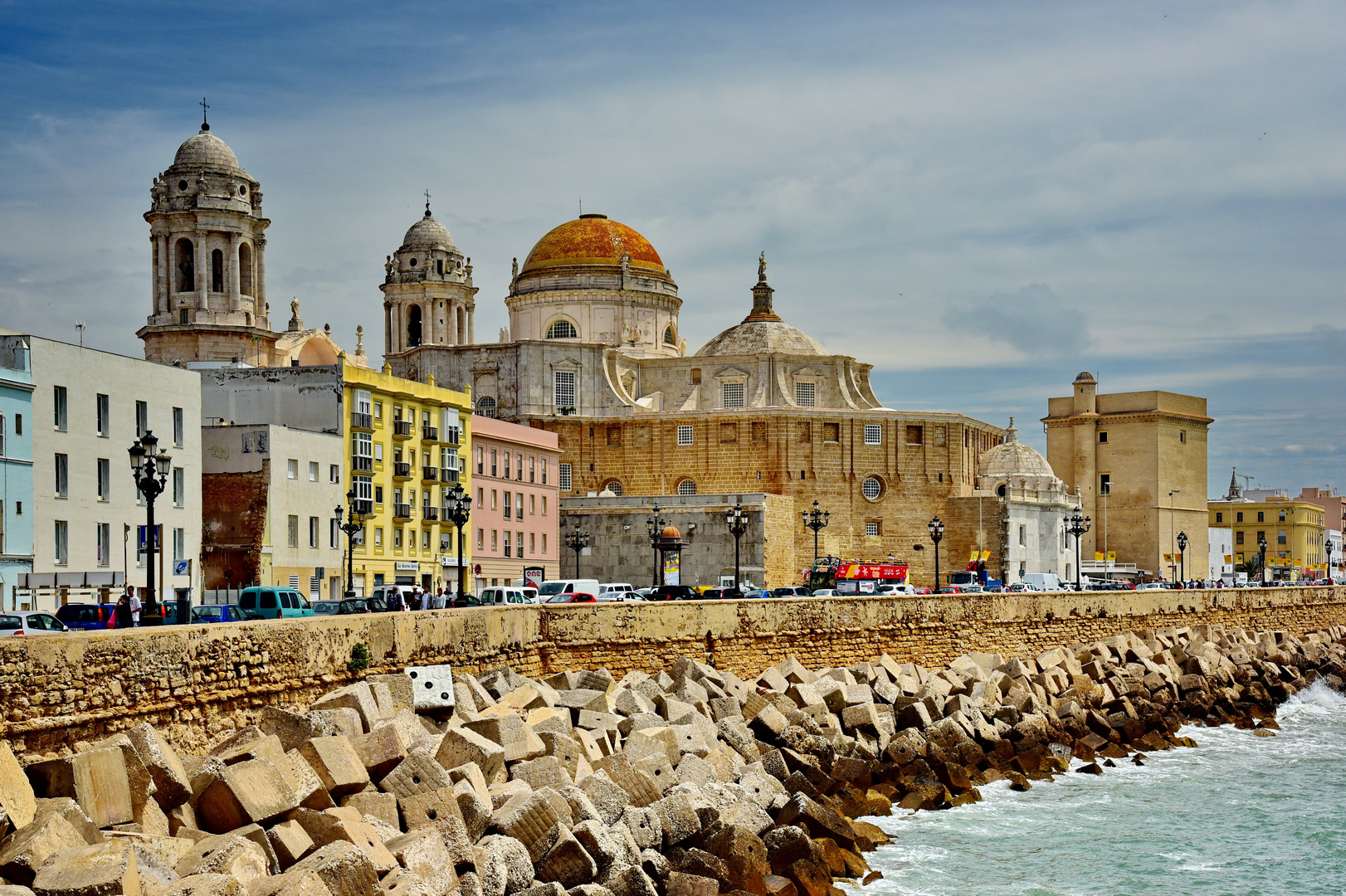Cádiz Cathedral
Cádiz Cathedral (Spanish: Catedral de Cádiz, Catedral de Santa Cruz de Cádiz) is a Roman Catholic church in Cádiz, southern Spain, and the seat of the Diocese of Cadiz y Ceuta. It was built between 1722 and 1838. The cathedral was declared Bien de Interés Cultural in 1931.
The Plaza de la Catedral houses both the Cathedral and the Baroque Santiago church, built in 1635.
The church was known as "The Cathedral of The Americas" because it was built with money from the trade between Spain and America. The 18th century was a golden age for Cádiz, and the other cathedral that the city had got, Santa Cruz, was very small for this new moment of Cádiz. The new cathedral was built from 1722 to 1838. The first person who design the church was architect Vicente Acero, who had also built the Granada Cathedral. Acero left the project and was succeeded by several other architects. As a result, this largely baroque-style cathedral was built over a period of 116 years, and, due to this drawn-out period of construction, the cathedral underwent several major changes to its original design. Though the cathedral was originally intended to be a baroque edifice, it contains rococo elements, and was finally completed in the neoclassical style. Its chapels have many paintings and relics from the old cathedral and monasteries from throughout Spain.
In the crypt are buried the composer Manuel de Falla and the poet and playwright José María Pemán, both born in Cádiz.
Levante Tower, one of the towers of Cádiz Cathedral, is open to the public and shows panoramas of the city from on high.










Tina Farfalle 17/10/2015 18:16
In Cadiz war ich mal auf der Durchreise...Sehr schöner Bildschnitt!
LG Tina
fabrizio bertini 06/08/2015 21:20
complimenti molto bella+++++ciao fabrizio
Juli59 06/08/2015 16:43
muy bien. passt alles perfekt. saludosstruz 06/08/2015 12:04
Wunderschöner Ort, gefällt mir sehr diese Aufnahme.Gruß Struz
Enzo Leprai 06/08/2015 11:10
Excellent story... thank's